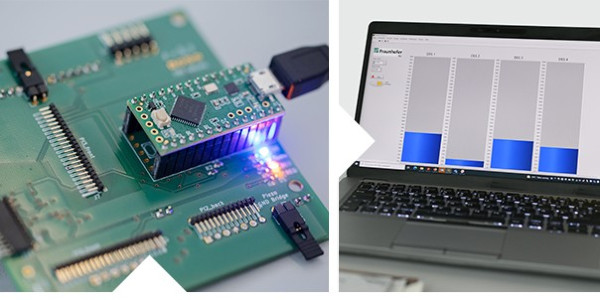Spartacus battery research developing well
In Germany, the European battery research project Spartacus has published a positive interim report one year after it was first initiated for the development of advanced battery sensors and cell management systems. The Fraunhofer Institute for Silicate Research in Würzburg is acting as project coordinator.
Spartacus stands for ‘Spatially resolved acoustic, mechanical and ultrasonic sensing for smart batteries’ and is part of the EU research initiative Battery 2030+. When the project started last year, the researchers said they hoped to reduce charging times by up to 20 per cent. This should be achieved by developing multifunctional sensor array technology for batteries without sacrificing the reliability and service life of the batteries. The goal is to exploit previously unused reserves in battery management through comprehensive battery monitoring.
The technology being developed should transmit relevant data to battery management systems for condition-dependent, optimal charging and discharging. The project partners are focusing on mechanical and acoustic sensors, supplemented by electrochemical impedance measurements and temperature sensors. In the past twelve months, a number of partial aspects have been worked on, and now the individual components can be combined into a complete system, according to an interim summary from the Fraunhofer ISC.
According to coordinator Gerhard Domann from the Fraunhofer ISC, says that not only have new sensor concepts been prepared by combining acoustic-mechanical and thermal sensors with advanced analysis methods, but the modelling of the processes in the battery cell has also been advanced in such a way that new prediction models for battery condition and optimal charge control are possible. “Now it is a matter of putting the puzzle pieces together and linking them into a successful monitoring technology for batteries,” Domann says.
In the second phase of the project, the new battery sensor technology will now deliver real data in test series, which will be correlated with the model data. On this basis, the scientists want to develop refined prognosis models that will enable future battery management systems to better exploit the performance range of the batteries and to detect faults and negative influences on battery life and performance at an early stage.
In addition to the Fraunhofer Institute ISC, other research institutions involved in Spartacus are CEA from France, CSEM from Switzerland, Vrije Universiteit Brussel and Fundacion Cidetec from Spain. In terms of industry players, Arkema and ElringKlinger are on board. The EU is providing around 3.8 million euros for the project, which will run until the end of August 2023.
Spartacus was launched in September 2020 together with six other projects as part of the European research initiative BATTERY 2030+. The major cross-sectoral project is one of the extensive initiatives in this field. It is part of the European Battery Alliance, which Maroš Šefčovič, Vice-President of the European Commission, launched in 2017.
BATTERY 2030+ was launched in March 2019 and brings together stakeholders from both scientific and industrial battery research and technology. The core group comprises 17 organisations from nine European countries, coordinated by Kristina Edström, Professor of Inorganic Chemistry at Uppsala University. In April 2020, the group had presented the long-term roadmap for the development of sustainable battery technologies.





0 Comments